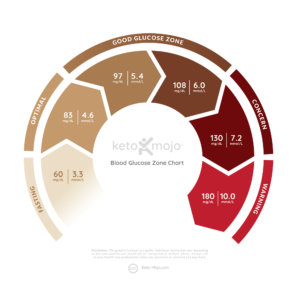Mild Hearing Loss A person with a mild hearing loss may hear some speech sounds but soft sounds are hard to hear. For example many states will define hearing impairment as loss of 70 decibels or more or the ability to discern speech at 50 percent or less with aids.
 Otological Burdens Of Nigerian Children With Sickle Cell Disease Sciencedirect
Otological Burdens Of Nigerian Children With Sickle Cell Disease Sciencedirect
Legally hearing impairment is usually defined at the state level.

Levels of deafness. Degree of hearing loss Hearing loss range dB HL Normal 10 to 15. 6 Levels Of Hearing Loss Profound Hearing Loss 400 Profoundly Deaf 300 The stage where you can only hear intensely loud sounds is usually defined as Profound hearing loss Most people suffering from such decibel hearing loss are unable to hear sounds below 90dB. This is the sound level of heavy traffic on the highway.
There are four common levels of deafness as classified by audiologists. 56 to 70. Our exposures to noise at work noise on the roadway and music can ultimately affect our ability to hear.
Special education laws define it as any hearing loss that affects the ability to learn that is not covered under the. Conductive deafness means that sound cant pass efficiently through the. This usually means that the cochlea isnt working effectively.
The person can only detect sounds between 25 and 29 decibels dB. Uses and abuses of hearing loss classification. The degree of hearing loss can range from mild to profound.
Mild hearing loss affects sounds in the 25-40 dB range. Examples of sounds in the range of mild hearing loss are normal breathing 10 dB whisper from over five feet away 25 dB to sounds in a quiet library 40 dB. Mild Moderate Severe and Profound.
These definitions are useful to give a rough guide as to how bad your hearing loss is but its by no means an exact science - for example someone could have a mild hearing loss for low-pitch sounds and a moderate loss for higher pitch sounds this is actually very common. As it is the initial level it is the most difficult to notice. People with mild hearing loss cannot hear sounds quieter than 25-45 dB.
Sensorineural deafness or nerve deafness as its sometimes called is a hearing loss in the inner ear. This means that the sounds like ticking of the clock dripping of the water or. People who suffer from mild hearing loss will normally have some difficulties keeping up with conversations especially in noisy surroundings.
The most common cause of hearing loss in children is otitis media. Moderate Hearing Loss affects sounds in the range of 40-75 dB. We Improve Your Hearing To Enhance Your Everyday.
The four different levels of hearing loss are defined as. The level of your childs deafness can be described in terms of their decibel dB hearing level or by the terms mild moderate severe or profound. Elderly adults suffer most often from hearing loss.
Partial or complete hearing loss. When measured together decibels and hertz tell the degree of hearing loss you have in each ear. Moderate Hearing Loss A person with a moderate hearing loss may hear almost no speech when another person is talking at a normal level.
Softer sounds are difficult to discern for the sufferer. On average the most quiet sounds that people can hear with their better ear are between 25 and 34 dB. Based on British Society of Audiology definitions of hearing loss this is the decibel hearing level range each of these terms refer to.
There are four levels of deafness or hearing impairment. When hearing ability is tested a range of 250 Hz to 8000 Hz is measured because it encompasses the speech frequencies the most important range for communication. We Improve Your Hearing To Enhance Your Everyday.
A continuous level of noise at 85 decibels dB can cause either temporary or permanent hearing loss. Ad Life Is Good. Mild 2140 dB moderate 4170 dB.
Ad Life Is Good. Levels of deafness. Levels of hearing impairment vary from a mild to a total loss of hearing.
Mild deafness or mild hearing impairment. WHO Grades of hearing impairment. Degrees of hearing loss.
Sensorineural deafness is permanent.
![]() How Does A Keto Diet Affect Stress Hormones Nutrita
How Does A Keto Diet Affect Stress Hormones Nutrita 

